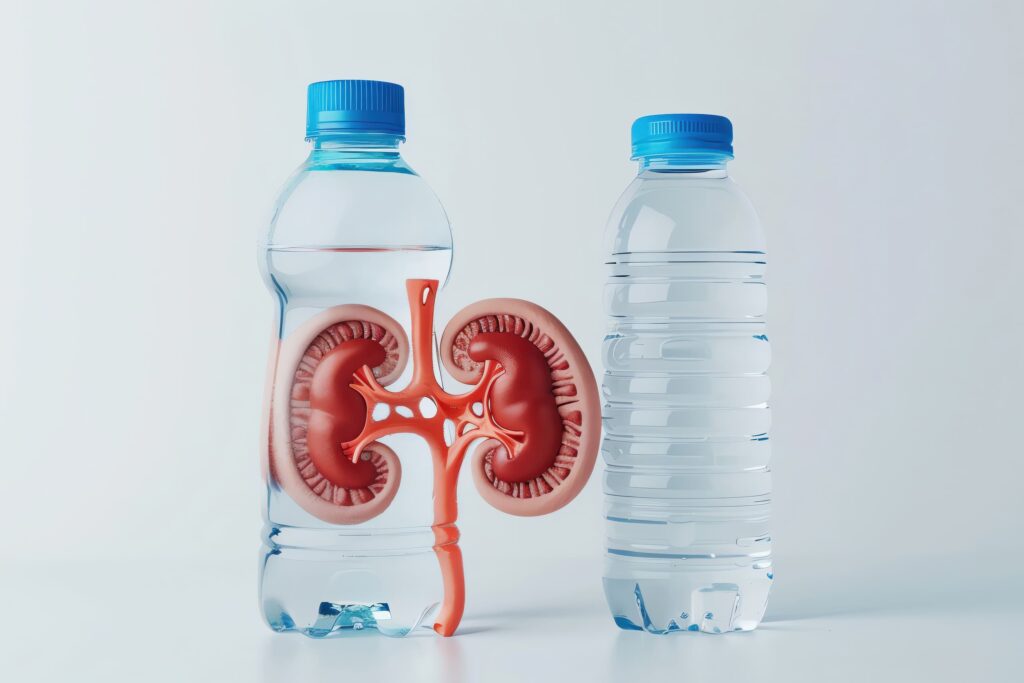Tips to Slow the Progression of CKD

Your kidneys are vital organs that filter your blood, removing waste products and toxins from your blood. They also help regulate fluid and electrolyte balance, control blood pressure, support bone health, and aid in red blood cell production. Chronic kidney disease (CKD) is a serious condition that can advance slowly over the years, impacting your kidney function and overall health. Our team at Texas Advanced Renal Health has put together a guide with tips on slowing the progression of CKD to enhance your health and quality of life.
What Are the Stages of Chronic Kidney Disease?
The National Kidney Foundation (NKF) has outlined five stages of kidney disease determined by the glomerular filtration rate (GFR), which evaluates how well the kidneys filter waste. The stage of kidney disease is also determined using the eGFR or estimated glomerular filtration rate, a formula that considers the patient’s age, gender, race, and serum creatinine level.
In the earliest stages, the kidneys continue to filter waste from your blood, maintaining near-normal function. As the condition progresses, the kidneys work harder to remove waste and toxins from your blood and may stop working altogether. At Texas Advanced Renal Health, we strive to slow the progression of CKD to prevent its devastating impacts on your kidneys and overall health.
Tips to Slow the Progression of Chronic Kidney Disease
Slowing the progression of CKD involves a combination of medical management, lifestyle modifications, and proactive care. Here are tips to keep your kidneys functioning their best for as long as possible:
- ControlHypertension: Aim for a target blood pressure of less than 130/80 mmHg or as recommended by your doctor. Dr. Sadeddin may prescribe medications like diuretics, ACE inhibitors, ARBs, or calcium channel blockers, as needed, to keep your blood pressure in check.
- Manage Diabetes: Keep your blood sugar levels under control with proper diet, regular exercise, and medication. Monitor your blood sugar levels and keep up with regular checkups with your doctor to prevent the impacts of diabetes on your kidneys.
- Maintain a Kidney-Healthy Diet:Renal nutrition can help slow the progression of CKD and boost your overall health. Include plenty of fresh fruits and veggies in every meal, and limit salt, potassium, and phosphorus to avoid any added stress on your kidneys.
- Drink Plenty of Water: One of the most important things you can do for your kidney health is to drink plenty of water. Water helps eliminate excess sodium and waste and lowers the risk of urinary tract infections (UTIs) and kidney stones.
- Exercise Regularly: Regular exercise and activity help keep your blood pressure at healthy levels, enhance your blood circulation, and reduce your risk of hypertension, diabetes, and obesity, all of which can impact your kidney health. Committing to a daily walk can improve your kidney health and slow down the progression of CKD.
- Limit NSAIDs: Some medications can be harmful to your kidneys, including nonsteroidal anti-inflammatory drugs (NSAIDs) like ibuprofen and naproxen. These over-the-counter or prescription drugs can reduce blood flow to the kidneys and can build up in the body, worsening kidney function in patients with CKD.
- Monitor Your Kidney Health: Regular monitoring and kidney function tests are important for individuals with a family history of CKD, cardiovascular disease, hypertension, or obesity or those with symptoms of CKD. Our team at Texas Advanced Renal Health will adjust your treatment plan to slow down or prevent future kidney damage.
CKD Management Near Me in McKinney, TX
If you have a family history, are experiencing symptoms, or have been diagnosed with CKD, contact Texas Advanced Renal Health to schedule a consultation. Dr. Sadeddin and his patient-centered team offer personalized care to boost your kidney health and enhance your overall quality of life. We invite you to call 972-548-4833 or visit us online to schedule your appointment today!
